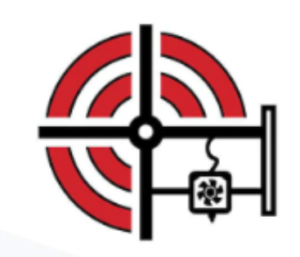Steakholder Foods (Nasdaq: STKH) is stepping into the Asian market with a new partnership. The Israeli firm has signed an agreement with Vegefarm, a Taiwanese company specializing in vegetarian and vegan products, to introduce its 3D printed plant-based marbled beef steak to Asia.
As part of the Memorandum of Understanding (MoU), Steakholder Foods will supply Vegefarm with its MX200, a 3D printer designed to create plant-based meats, along with proprietary plant-based premixes.
Meanwhile, Vegefarm will lead commercialization efforts in Taiwan, adapting the steak’s flavor and texture to suit local preferences. The collaboration is supported by the Industrial Technology Research Institute (ITRI), a major Taiwanese research institution, which will help tailor the product to the region’s unique market demands.
This marks the first time Steakholder Foods enters Asia, a region with a rapidly growing appetite for plant-based foods. The company’s advanced 3D printing technology, powered by Fused Paste Layering (FPL), makes it possible to create meat alternatives that mimic the textures of traditional meats.
“We are excited to enter this commercial phase with Vegefarm and to have the support of ITRI in adapting our innovative technology for Taiwan,” said Arik Kaufman, CEO of Steakholder Foods. “This deal is a testament to our commitment to providing scalable, high-quality plant-based solutions globally, and we look forward to seeing these products thrive in the Asian market through Vegefarm’s distribution channels.”
What Makes the MX200 Printer Special?
The MX200 3D printer is the centerpiece of this partnership. It uses FPL technology to create plant-based meats with unparalleled precision, replicating the texture and marbling of traditional steaks. Meanwhile, Steakholder Foods’ proprietary premixes are designed to ensure the finished product not only looks like real beef but also has a similar taste and mouthfeel. By customizing these premixes, Vegefarm can cater to the different flavor types preferred by Asian consumers. The printer’s ability to create high-quality, scalable alternatives to meat is key as demand for plant-based proteins keeps growing everywhere.
As for the ITRI, its addition to this partnership adds another layer of innovation, ensuring that the product is developed for the local market. With a history of transforming Taiwan’s industries from labor-intensive to innovation-driven, ITRI has decades of expertise in R&D and a proven track record of incubating globally recognized companies, including two of the largest semiconductor manufacturers in the world, the Taiwan Semiconductor Manufacturing Company (TSMC) and United Microelectronics Corporation (UMC).

Steakholder Foods’ full-scale Demonstration Center featuring the company’s innovative 3D printer. Image courtesy of Itamar Ginsburg.
Taiwan is an ideal place for this expansion because many people there follow vegetarian diets, and more are becoming interested in plant-based foods. About 13% of Taiwan’s population, which is over 3 million people, are vegetarians. Additionally, the plant-based food market in Taiwan is growing, with sales expected to reach $46.5 million by 2026, showing a steady increase in demand for sustainable food options.
Vegefarm, with its 70-year history and extensive portfolio of over 300 vegetarian and vegan products, is a great partner for Steakholder Foods. The company has established distribution channels and a deep understanding of local consumer preferences, positioning it as an ideal collaborator for launching the 3D printed marbled beef steak in Asia.
A Glimpse Into the Future of Food
The partnership aligns with global efforts to create more sustainable food systems. By producing plant-based steaks with 3D printing, Steakholder Foods, and Vegefarm are reducing the environmental impact associated with traditional meat production. This approach minimizes resource use, such as water and land, while eliminating the need for animal farming.
Steakholder Foods has been at the forefront of developing alternative proteins, with products that mimic the textures and flavors of traditional meats like beef, shrimp, and even eel. What’s more, the company’s work extends into cultivated cell integration, preparing for future advances in food technology that could further boost sustainability.
As this partnership grows, the implications could extend far beyond Taiwan. The success of this venture could pave the way for similar collaborations across other Asian nations, accelerating the adoption of plant-based alternatives and advancing the role of 3D printing in the food industry.
Subscribe to Our Email Newsletter
Stay up-to-date on all the latest news from the 3D printing industry and receive information and offers from third party vendors.




